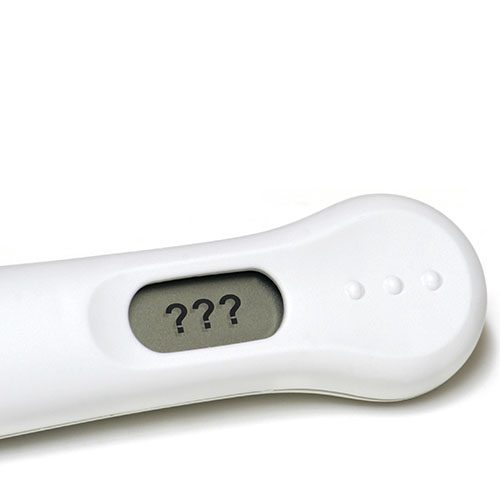Infertility is a condition of the reproductive system that is diagnosed after a couple has had one year of unprotected, well-timed intercourse, or if the woman has suffered from multiple miscarriages and the woman is under 35 years of age.
What is infertility?
Most people have a desire to have a child at some point in their life, and even though they try to conceive a child, it does not happen. This is infertility. It is the inability to conceive a child within 12 months, a diagnosis shared by 15% of couples who want to have children.
It is recommended that help from a reproductive endocrinologist is sought out if conception has not occurred within 12 months. However, there are various reasons why a patient should seek earlier help, and these include:
Infrequent menstrual periods
When a woman has an irregular menstrual cycle – defined as a cycle at intervals greater than 35 days or less than 21 days – it may indicate that she is not ovulating an egg predictably, or even at all. Ovulation is essential for pregnancy.
Age
The number of eggs rapidly decreases as women age. Therefore, it is recommended that women over the age of 35 years should have a fertility evaluation if they are trying to conceive.
Pelvic infections or STDs
Sexually transmitted infections, such as chlamydia or gonorrhoea, can cause inflammation and permanent scarring of the fallopian tubes.
Uterine fibroids or endometrial polyps
Fibroids indent the endometrial cavity and endometrial polyps, impairing how the endometrium (the lining of the uterus) and embryo interacts to lower implantation and pregnancy rates. These abnormalities can cause irregular bleeding between menstrual cycles.
Semen abnormalities
If a male partner has a history of infertility with a prior partner, or if there are abnormalities on his semen analysis, then we advise earlier fertility evaluation, ideally within 6 months of attempting pregnancy.
What are the risk factors associated with infertility?
There are a number of risk factors for male and female infertility. Some of them can be modified through simple changes in lifestyle. However, others may require more intensive treatment, while others cannot be changed.
Risk factors for men include:
- old age
- tobacco use
- heavy drinking
- use of certain illicit drugs
- extended periods of bicycling
- being underweight or overweight
- a history of sexually transmitted infections (STIs)
- exposure to toxins, particularly in the workplace
- regular warming of the testicles
- prior vasectomy (male sterilization) or reversal
- inherited fertility disorders
- certain inherited medical conditions, such as cystic fibrosis
- certain medical treatments, such as chemotherapy and radiation
- diabetes
- high blood pressure
- kidney disease
- hormone problems
Risk factors for women include:
- older age
- heavy or frequent alcohol use
- heavy caffeine use
- cigarette smoking
- stress and fatigue
- being overweight or underweight
- intense athletic training (such as preparing for a marathon)
- STIs
- chronic health problems, such as high blood pressure and diabetes
- reproductive health problems, such as endometriosis and fibroids
- polycystic ovarian syndrome (PCOS)
- primary ovarian insufficiency
- other hormonal problems
What is involved in the fertility evaluation?
In order to accurately diagnose infertility, a thorough evaluation will be done which includes:
- History and physical examination
- Transvaginal ultrasound
- Laboratory testing
- Hysterosalpingogram (HSG
- Semen analysis
Coping with infertility
Coping with infertility can be extremely stressful and emotionally draining. You cannot predict how long your infertility will last, or what the outcome of your tests will be. The emotional burden that infertility places on a couple is considerable. However, taking these steps can help you cope:
Be prepared The uncertainty of infertility testing can be daunting. We will explain the steps that you will have to take so that you can be emotionally prepared for each one.
Set Limits Fertility treatments may be expensive and often are not covered by medical aid companies. It may also require follow-up treatments in order to succeed. Before undergoing treatment, decide how many and what kind of procedures are emotionally and financially acceptable for you and your partner.
Consider other options Although many couples want to have babies of their own, it would be a good idea to consider other options – adoption, donor egg or sperm, donor embryo – as early as possible during the infertility evaluation. This may reduce anxiety during treatments and feelings of hopelessness if conception doesn't occur.
Seek Support Find support groups or counselling services for help before and after treatment to help endure the process and ease the grief should treatment fail.
Surgery
There are two kinds of surgery available to help assist infertile men with conception. These are called vasovastomy and laparoscopic varicocelectomy.
A vasovasostomy is a procedure in which the effects of a vasectomy are reversed. During a vasectomy, the ducts that carry sperm from the testicles to the seminal vesicles are cut, tied and cauterized (burned), or interrupted. A vasovasostomy, on the other hand, creates an opening between the separated ends of each vas deferens so that the sperm may enter the semen before ejaculation.
Laparoscopic varicocele surgery is very similar to open surgery but is less invasive. It is a relatively new procedure often used as an alternative to testicular varicocele surgery with varicolectomy. Men with varicoceles associated with significant pain or those who have fertility problems often seek treatment. A varicocele is a varicose vein in the scrotum. It occurs when the one-way valves, which are designed to allow vein flow from the scrotum and testicles to go back to the heart, do not work properly. If these valves fail to work properly, the blood pools inside the vessels, causing enlargement of the veins. Varicocele symptoms include swelling, pain, and infertility.
Frequently Asked Questions with regards to Infertility
-
What is infertility?
-
Who gets it?
Infertility is a medical problem. Approximately 30% of infertility is due to a female factor and 30% is due to a male factor. In the balance of the cases, infertility results from problems in both partners, or cannot be explained.
-
What are the signs and symptoms?
Often there are no signs or symptoms associated with an infertility problem. Listening to your body and getting regular check-ups will help to detect a problem. Early detection and treatment of a problem are often critical in achieving successful pregnancy outcomes later.
-
How is infertility treated?
Medical technology now offers more answers and treatment options to men and women trying to conceive a child. From hormonal treatments, ovulation induction and Intrauterine insemination to more advanced technologies like in vitro fertilization, ICSI to surrogacy, egg/sperm donation and even embryo donation.
-
What medications are used?
There are a variety of medications used to treat infertility. It is important to understand the medications and what their purpose is and to speak to us about the medications that will be used in your specific treatment plan.





